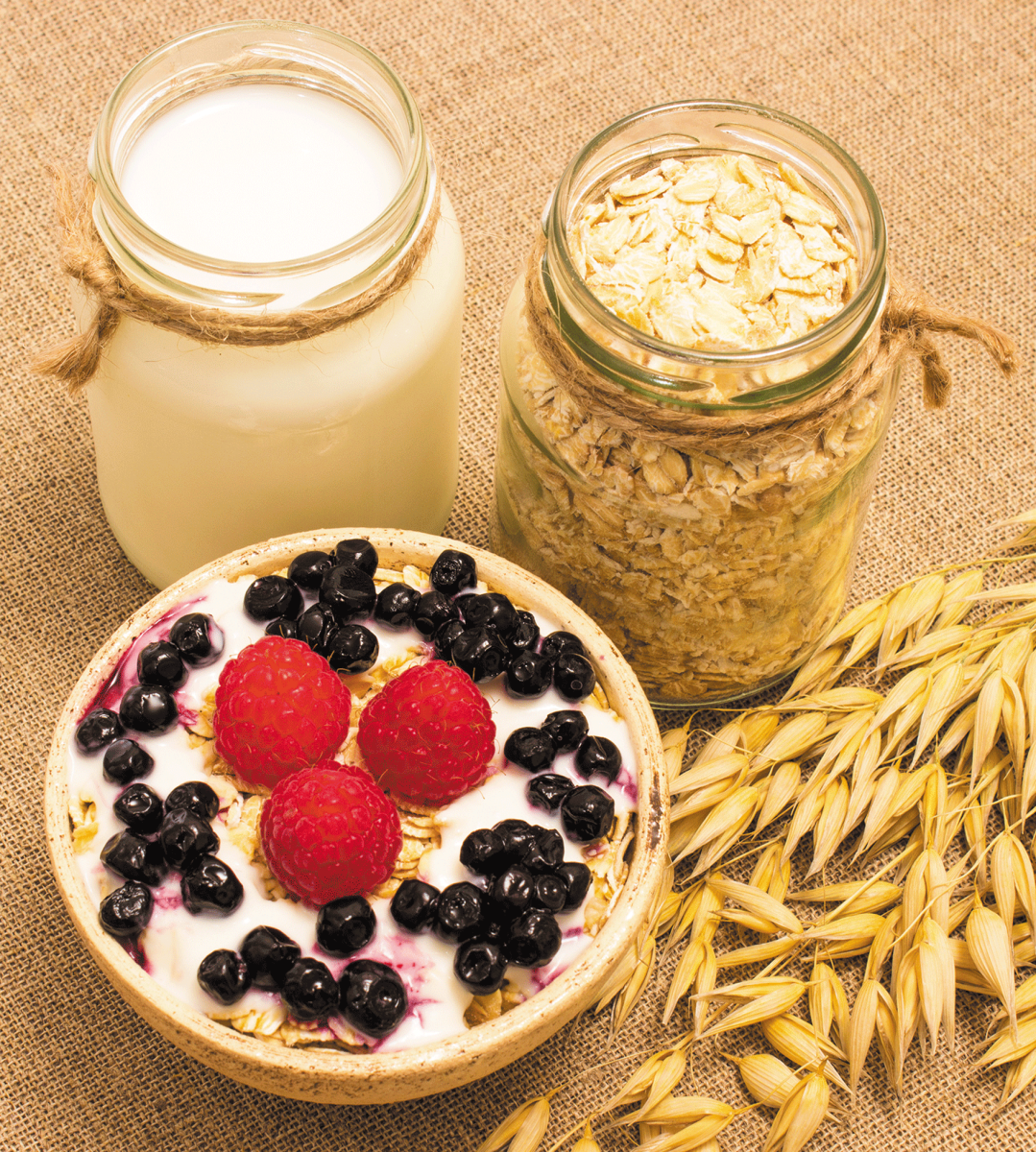
5 timeless habits for better health

What are the symptoms of prostate cancer?

Is your breakfast cereal healthy?

When pain signals an emergency: Symptoms you should never ignore

Does exercise give you energy?

Acupuncture for pain relief: How it works and what to expect

How to avoid jet lag: Tips for staying alert when you travel

Biofeedback therapy: How it works and how it can help relieve pain

Best vitamins and minerals for energy

Should you take probiotics with antibiotics?
Nutrition Archive
Articles
A few things you might not know about alcohol
Beer, wine, and spirits are foods as well as intoxicants that have different effects in women than in men.
In the first episode of the sitcom "Grace and Frankie," the title characters, played by Jane Fonda and Lily Tomlin, are ordering drinks before dinner. When carb-conscious Fonda sends the breadbasket away and asks for a very dry vodka martini, Tomlin reminds her that vodka is made from potatoes. Fonda responds, "Alcohol has its own rules."
Commonsense strategies to help you eat more fruits and vegetables
Image: Thinkstock |
Here's how to enhance the foods you already like with heart-healthy plant sources.
According to a recent national food survey by the CDC, 87% of American adults do not eat the minimum daily recommended portions of fruit (1.5 to 2 cups), and 91% are not getting the recommended amount of vegetables (2 to 3 cups a day). The reasons for this unhealthy trend vary. One important factor is that food preferences, including an aversion to fruits and vegetables, form early in life and can be hard to change. "People say, 'I don't like salad' and 'I don't like spinach,' and that's that," says Stacey Nelson, a registered dietitian and manager of clinical nutrition at Harvard-affiliated Massachusetts General Hospital.
The balancing act: A guide to heart-friendly holiday eating
Making smart eating choices can help you enjoy your favorite holiday foods in a heart-healthy way. |
Planning ahead can help you navigate the hazards of holiday overindulgence.
Whole-grain oats: Best bet for lowering cholesterol
Image: Thinkstock |
Research we're watching
Want to nudge down your cholesterol level? Try a bowl of oatmeal for breakfast. New research adds to earlier evidence that among the whole grains, oats are the most effective choice when it comes to lowering cholesterol.
The findings were gleaned from 24 studies that looked at blood lipids (cholesterol and triglycerides) in people who ate diets featuring whole-grain foods versus non-whole-grain control diets. Compared with the control diets, whole-grain diets lowered total cholesterol levels by an average of 4.6 points. Diets featuring oats proved to be slightly superior, dropping cholesterol levels by 6.5 points, on average. An added bonus: whole-grain diets don't appear to lower beneficial HDL cholesterol. The report appeared in the September 2015 American Journal of Clinical Nutrition.
Mind the holiday buffet
Avoid eating foods that have been left out for more than two hours. They may be breeding grounds for harmful bacteria that can make you sick. |
Avoid food that's been left out on a table for more than two hours, and handle food properly if you're doing the cooking.
Harvard researchers link coffee with reduced colon cancer recurrence
Image: Thinkstock |
You may drink coffee because it tastes good or helps you wake up. But the popular brew is also associated with health benefits, such as reducing the risk for heart disease, stroke, and type 2 diabetes. Now a study from Harvard-affiliated Dana-Farber Cancer Institute published Aug. 17, 2015, in the Journal of Clinical Oncology suggests that regular consumption of caffeinated coffee may be associated with a reduced recurrence of colon cancer, and even a reduced risk of death. The study included nearly 1,000 people with stage 3 colon cancer. They filled out questionnaires about their dietary patterns during chemotherapy, and then again six months after treatment was completed. People who drank four or more cups of coffee per day were 42% less likely to have cancer return than non-coffee drinkers, and were 34% less likely to die from cancer or any other cause.
This type of study doesn't prove that coffee drinking caused the lower chance of cancer recurrence and death. A randomized trial is needed to show cause and effect. But researchers are encouraged by the results. "Regular coffee intake has been associated with a reduced risk of type 2 diabetes, and it may be that through a similar mechanism, coffee may also improve outcomes for people with advanced colon cancer," says Dr. Charles Fuchs, senior author on the paper.
Spicy foods associated with longer life, Harvard researchers find
Image:Thinkstock |
There's no magic pill you can swallow to make you live longer, but what about food? A study from the Harvard School of Public Health published Aug. 4, 2015, in BMJ found that people who ate spicy foods almost every day had a 14% lower risk of death than people who ate spicy foods once a week. Researchers evaluated the health and diet information of almost 500,000 people in China from 2004 to 2008, then followed up with them a few years later. The study was observational, so it didn't show that spicy foods caused people to live longer, only that people who regularly ate spicy food—especially food with fresh and dried chili peppers—were less likely to have died during the study period than those who ate spicy food less frequently. "Some evidence from other studies suggests the bioactive ingredients in spicy foods such as capsaicin may lower 'bad' cholesterol and triglycerides and improve inflammation," says study author Dr. Lu Qi.
If you'd like to add more chili pepper to your diet, stick with something healthy, such as turkey chili or lentil pilaf, and skip the greasy tacos. But be careful: spicy foods may trigger an increase in gastric acid in some people, causing heartburn.
Is chocolate really a health food?
Most chocolate candy is low in flavonals. |
This treat is fine in small quantities, but its benefits for heart and brain health are still unproven.
Retail shelves are brimming with Halloween candy this month. If you're thinking of buying a supersized bag of miniature chocolate bars for healthy snacking, you may want to reconsider. Chocolate has been hyped as a food that may ward off cardiovascular disease and help to improve your memory, but at this point that's an overstatement.
Here's why: While some observational studies have linked chocolate consumption to reductions in heart disease and dementia, they don't establish a cause-and-effect relationship. Any benefit is thought to be due not to chocolate as such but to flavanols—bioactive compounds that occur naturally in the cocoa bean. Even though several small clinical trials have found that consuming high doses of flavanols can relax blood vessels and stimulate blood flow to the brain, more evidence is needed to determine whether they actually protect against heart attack and stroke. "Flavanols are one of the most promising and exciting nutritional interventions available for helping to reduce the risk of cardiovascular disease, and a large-scale randomized trial is the next logical step in testing their effectiveness," says Dr. JoAnn Manson, chief of the Division of Preventive Medicine at Harvard-affiliated Brigham and Women's Hospital.

5 timeless habits for better health

What are the symptoms of prostate cancer?

Is your breakfast cereal healthy?

When pain signals an emergency: Symptoms you should never ignore

Does exercise give you energy?

Acupuncture for pain relief: How it works and what to expect

How to avoid jet lag: Tips for staying alert when you travel

Biofeedback therapy: How it works and how it can help relieve pain

Best vitamins and minerals for energy

Should you take probiotics with antibiotics?
Free Healthbeat Signup
Get the latest in health news delivered to your inbox!
Sign Up











